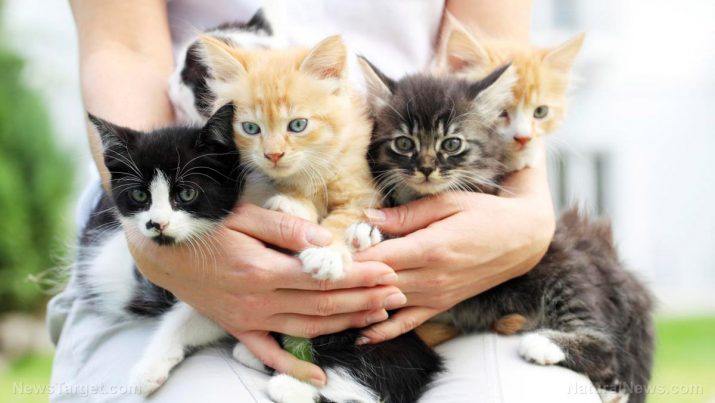
Cat experts say: Your cat is familiar with its own name
Friday, February 07, 2020 by Michael Alexander
http://www.naturalnewspets.com/2020-02-07-your-cat-is-familiar-with-its-own-name.html

Looks like T.S. Eliot and Andrew Lloyd Webber got it right.
If you’ve ever seen the stage musical CATS, an integral scene at the beginning of the show lays out an important fact: Cats can recognize their names. As it turns out, there is truth to that.
In a recent study, researchers from Sophia University in Japan found that domesticated cats (Felis catus), aloof as they are, are capable of recognizing their names when called.
“Cats are sensitive to differences in human voice characteristics,” the authors wrote in their paper, adding that their research came about as a way to investigate anecdotal accounts from owners about how cats can recognize not just their own names, but also words related to food.
The study, which appeared in the journal Scientific Reports, is the first project to delve into the possibility of cats recognizing and understanding human voices.
“Many cat owners know that cats understand their own names,” said lead researcher Atsuko Saito, adding that the felines seem to associate their name with both rewards and punishments.
“This is a natural and general learning ability in animals,” added Saito, who is also a behavioral psychologist at Sophia University.
The researchers recruited 78 specimens for the experiment, which consisted of cats from surrounding households and neighborhood cat cafes.
The researchers first assigned each cat with five words: the first four being similar-sounding nouns, and the fifth being the cat’s name. Then, they played recordings of the words to the cats. During this stage, the researchers took notes whenever the cats displayed signs of recognition. (Related: Your cat thinks you are a big, lazy mama cat.)
The researchers defined recognition in the study’s context as a noticeable response in which the animal either moved its ears, head or tail, or made distinct sounds. They graded each cat’s reactions on a four-point scale, which ran from “no reaction at all” to “a marked response.”
As per the details of the study, while most of the cats initially reacted to the words being played to them, the felines’ interest tapered off visibly as the list was read, only perking up again the moment their names were called.
The researchers noted, however, that some cats — specifically those who cohabited with others in settings such as cat cafes — were less able to distinguish their own names from those of other cats. They said this might be because the cats in question frequently heard their own name alongside others’. As a result, they have come to associate all of the group’s names with either rewards or punishments, rather than just their own.
Saito said the results of their study can be used to improve relations between cats and humans especially when it comes to matters such as training the felines to avoid dangers and the like.
“Since our results show that cats can discriminate and associate specific words with rewards or punishments, we can make cats associate them with things or places,” the researchers said.
“You know, there are so many studies about dogs’ ability to communicate with humans. We think it is important to show cats’ ability as well as dogs,” Saito said, adding: “[Such research] will help to make both cat and human welfare better.”
Sources include:
Tagged Under: Tags: breakthrough, cats, coolscience, discoveries, domestic cats, feline, goodscience, pet health, Pets, research





